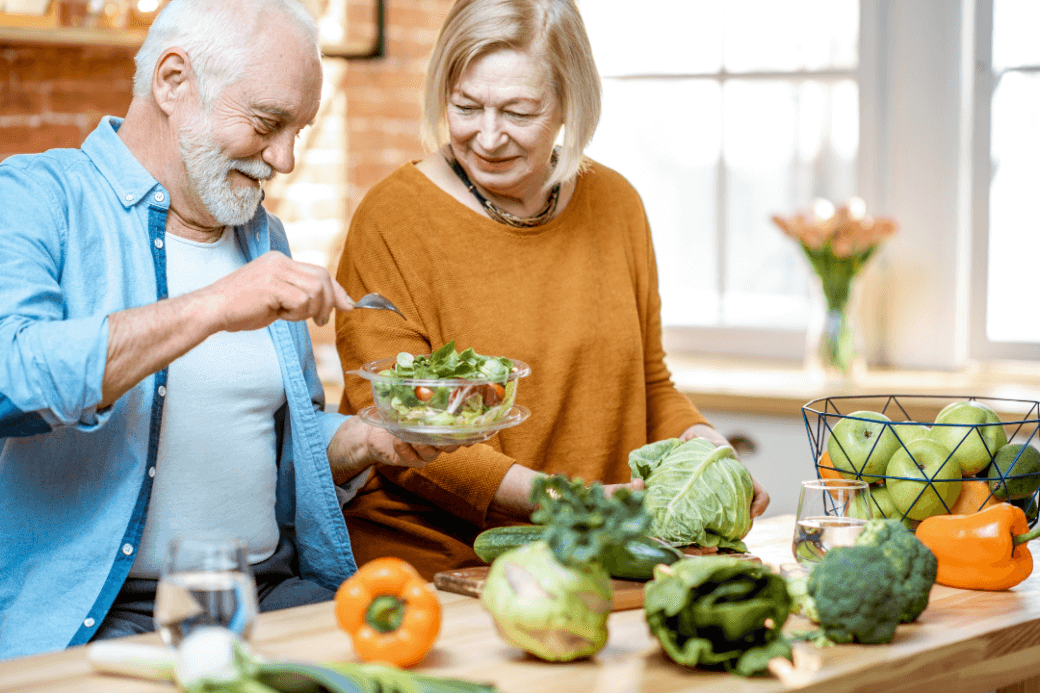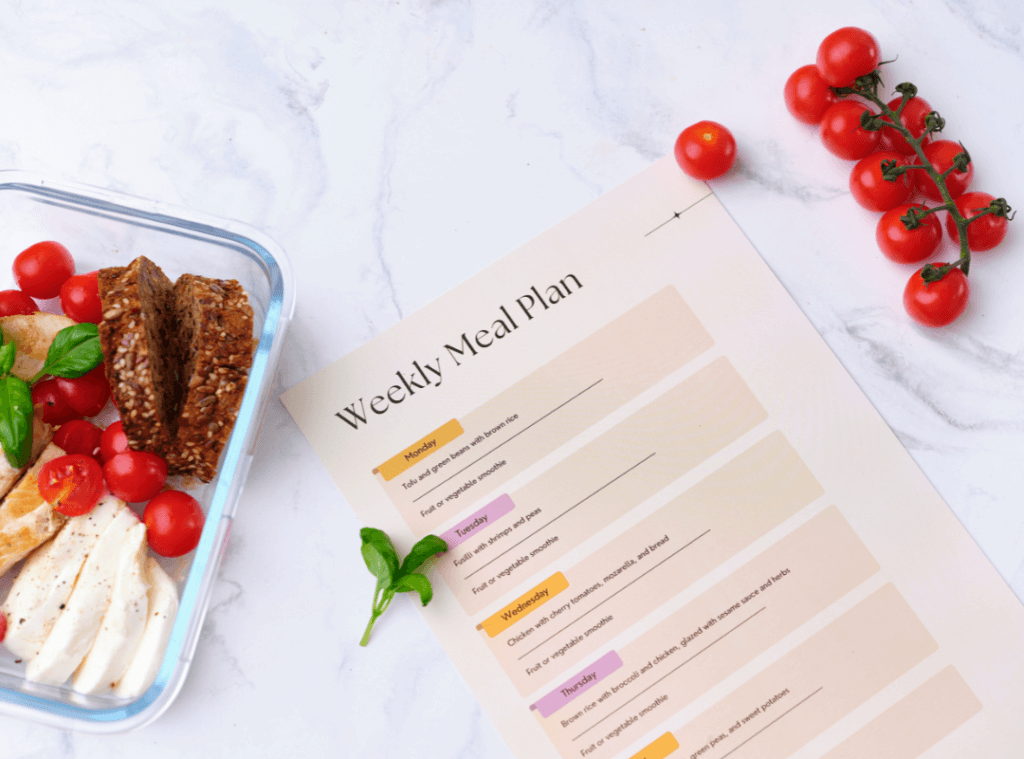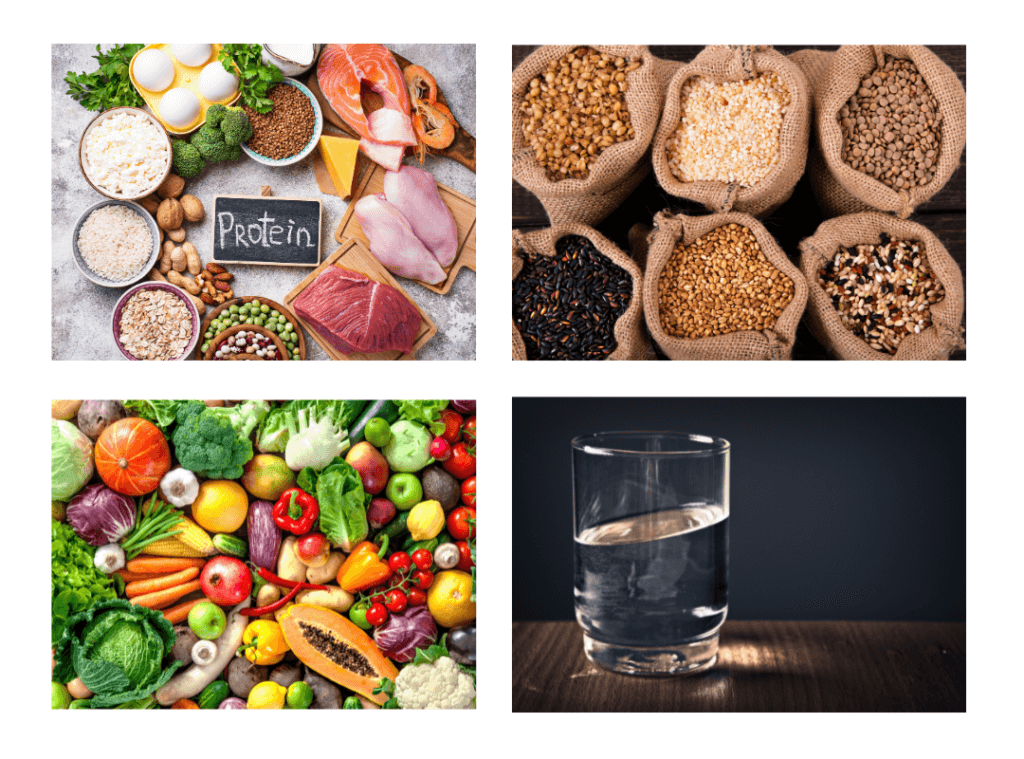Tips on Senior Diet for Healthy Eating as You Age

Senior Diet: Tips for Healthy Eating as You Age
You might not realize that your body’s ability to absorb nutrients changes considerably as you age, impacting your overall health. At The Valencia Home by MD Senior Living, we understand the importance of adapting your diet to ensure you get the nutrients your body needs. By focusing on nutrient-dense foods rather than just cutting calories, you can maintain energy levels and support your immune system. Want to discover practical tips and meal ideas that can make this change easier and more enjoyable?
Senior diet
When it comes to a senior diet, focusing on nutritional needs is essential for maintaining health and energy.
As we age, our bodies require various nutrients to prevent chronic diseases like high blood pressure and diabetes. Aim to include plenty of fruits, vegetables, whole grains, and lean proteins in your meals. Choosing low-added sugars, saturated fats, and sodium can help mitigate health risks.
Protein sources like seafood, dairy, beans, and lentils support muscle health.
Consider using pre-cut fruits and vegetables to make meals more accessible. Hydration is also vital; encourage drinking water instead of sugary drinks to improve digestion and nutrient absorption.

7-day meal plan for elderly
Planning a day’s meals for elderly individuals requires attention to nutritional needs while ensuring that meals are easy to prepare and enjoyable.
Here’s a simple meal plan that promotes health and satisfaction:
- Breakfast: Start with oatmeal topped with sliced bananas and a sprinkle of cinnamon. This provides fiber and essential nutrients.
- Lunch: Prepare a quinoa salad with mixed greens, cherry tomatoes, diced cucumbers, and a protein source like canned tuna. It’s invigorating and packed with vitamins.
- Dinner: Serve baked salmon with steamed broccoli and brown rice. Salmon offers heart-healthy omega-3 fatty acids, while broccoli delivers crucial vitamins.
- Snacks: Keep it light with Greek yogurt and a handful of berries. This snack not only satisfies but also adds protein and antioxidants.
70-year-old diet plan
Creating a diet plan for a 70-year-old requires careful consideration of nutritional needs while guaranteeing meals are both enjoyable and easy to prepare. Focus on incorporating a variety of food groups that support overall health. Aim for lean proteins like fish, dairy, beans, and lentils, which can help maintain muscle mass and strength.
Include plenty of fruits and vegetables in your meals. Pre-cut options can save time and make adding these nutritious choices to snacks and dishes easier. Whole grains should be a staple, as they provide essential fiber for digestive health.
Limit added sugars, saturated fats, and sodium to reduce the risk of chronic diseases. Opt for cooking methods like baking, steaming, or grilling rather than frying. Staying hydrated is vital, so encourage drinking water throughout the day while minimizing sugary beverages.
Plan meals in advance to guarantee variety and balance, making managing grocery lists and budgets easier. Always consult a healthcare provider for personalized recommendations based on individual needs.
With these strategies, you can create a nourishing diet that enhances the quality of life for a 70-year-old.

Diet plan for old age above 65
At age 65 and beyond, your dietary needs shift, necessitating a focus on nutrient-dense foods that support overall health and well-being.
As you plan your meals, consider these essential components that can enhance your quality of life:
- Incorporate Lean Proteins: Include sources like beans, lentils, poultry, and low-fat dairy to maintain muscle mass.
- Emphasize Whole Grains: Choose whole grains over refined options for better fiber intake, which aids digestion.
- Load Up on Fruits and Vegetables: Aim for a colorful variety packed with vitamins, minerals, and antioxidants.
- Stay Hydrated: Keep water as your main beverage, avoiding sugary drinks that can lead to weight gain and health issues.
Senior diet plan
A well-structured senior diet plan focuses on incorporating nutrient-dense foods that meet the unique needs of older adults. To start, prioritize a variety of fruits and vegetables. Aim for colorful options, as they provide essential vitamins and antioxidants.
Include whole grains like brown rice or quinoa for added fiber, which is important for digestive health. Protein is essential, so consider lean fish, poultry, beans, and low-fat dairy options. These choices support muscle maintenance, which often declines with age.
When selecting foods, keep an eye on added sugars, saturated fats, and sodium, opting for low-sodium options whenever possible. Don’t forget hydration! Drinking water is crucial for digestion and nutrient absorption. Limit sugary drinks that can lead to health complications.
Planning your meals can help you maintain variety and balance. Create a shopping list to guarantee you stick to your nutritional goals while staying within your budget. Consult with a healthcare provider to tailor your caloric intake and dietary needs.
Senior diet menu
When planning a senior diet menu, focusing on nutrient-rich foods that cater to specific dietary needs is essential. This guarantees that meals aren’t only satisfying and supportive of overall health.
Here are some easy ideas to get you started:
- Breakfast: Opt for oatmeal topped with fresh berries and a dollop of yogurt. This combination provides fiber, antioxidants, and protein.
- Lunch: Prepare a colorful salad with leafy greens, chickpeas, cherry tomatoes, and a light vinaigrette. It’s packed with vitamins and minerals.
- Dinner: Serve grilled salmon with steamed broccoli and quinoa. This meal is rich in omega-3 fatty acids and whole grains, promoting heart health.
- Snacks: Keep sliced fruits and nuts on hand. They’re perfect for a quick energy boost and are loaded with nutrients.
Creating a diverse menu like this meets nutritional needs and makes mealtime enjoyable.
Incorporate seasonal produce to keep things fresh and exciting. Remember, a well-planned menu can enhance the quality of life for the seniors you care for, fostering independence and joy in healthy eating.
Nutritional requirements for elderly PDF
Understanding the nutritional requirements of the elderly is essential for promoting health and well-being. As you age, your body’s needs change and it becomes vital to focus on nutrient-dense foods rather than calorie-dense ones. Aim for a balanced intake of proteins, healthy fats, and carbohydrates from various sources. Incorporate lean proteins such as fish, poultry, beans, and low-fat dairy to support muscle maintenance.
You should also prioritize fruits and vegetables rich in vitamins, minerals, and fiber. Opt for colorful varieties and consider pre-cut options for convenience. Limit added sugars, saturated fats, and sodium to reduce the risk of chronic diseases like hypertension and diabetes.
Hydration is another key aspect; drinking plenty of water helps with digestion and nutrient absorption. Keep sugary drinks at bay to maintain overall health.
For detailed nutritional guidance, consider downloading a PDF outlining specific requirements for older adults. These resources can provide valuable information on portion sizes and food groups, ensuring you make informed choices that promote a healthy lifestyle for yourself or those you serve.
7-day meal plan for elderly female
Creating a balanced day meal plan for an elderly female often involves focusing on nutrient-dense foods that support overall health. To guarantee she’s nourished, consider this simple meal plan:
- Breakfast: Scrambled eggs with spinach and a slice of whole-grain toast. This provides protein and essential vitamins.
- Lunch: A colorful salad with mixed greens, cherry tomatoes, chickpeas, and a light vinaigrette paired with a small serving of quinoa. This combination offers fiber and antioxidants.
- Snack: A small bowl of Greek yogurt topped with fresh berries. This snack is rich in calcium and probiotics.
- Dinner: Grilled salmon with steamed broccoli and brown rice. This meal is packed with omega-3 fatty acids and complex carbohydrates.
Remember to encourage hydration throughout the day. Water is always the best choice!
By focusing on these wholesome options, you’ll help her maintain energy and support her immune system. A little planning goes a long way in crafting meals that aren’t just nutritious but also enjoyable.
Each meal can be an opportunity to connect and share, making mealtime a cherished moment.
As you embrace the golden years, remember that a vibrant, nutrient-rich diet can transform your health and well-being. Picture yourself enjoying a colorful plate of fresh fruits and vegetables, feeling energized and revitalized. You create nourishment and joyful moments by planning meals, staying hydrated, and involving loved ones in the kitchen. With mindful choices and a little creativity, you’ll age gracefully and thrive, savoring each bite and every beautiful moment life has to offer. For more support on healthy eating as you age, contact The Valencia Home by MD Senior Living at 480-605-4002.
Questions on Seniors’ Nutrition
What is the best diet for a senior?
A balanced diet for seniors focuses on nutrient-dense foods like fruits, vegetables, whole grains, lean proteins, and healthy fats. It’s important to include calcium, vitamin D, and fiber-rich foods to support bone health and digestion while limiting added sugars and sodium to manage heart and overall health.
What should an 80-year-old eat in a day?
An 80-year-old should aim for smaller, nutrient-packed meals throughout the day, including protein-rich options like eggs or beans, whole grains, and various colorful fruits and vegetables. Staying hydrated and incorporating healthy snacks like nuts or yogurt can help maintain energy and overall wellness.
What should a 70-year-old eat to lose weight?
To lose weight, a 70-year-old should focus on portion control and prioritize high-fiber, low-calorie foods like leafy greens, lean proteins, and whole grains. Regular physical activity and a balanced diet help create a sustainable calorie deficit while maintaining muscle mass.
What is the one fruit all seniors should eat?
Berries, such as blueberries or strawberries, are an excellent choice for seniors due to their high levels of antioxidants, fiber, and vitamins. These nutrients support the brain, digestion, and heart health, making berries a beneficial addition to any diet.






Leave a Comment